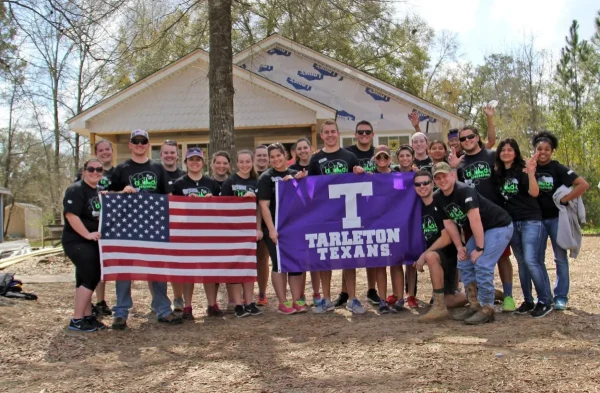Award-winning Marilyn Nelson powerfully reads her words of poetry to the Tarleton Community
March 6, 2013
“We are the masters. Language is the tool,” explained renowned poet Marilyn Nelson during her visit to a crowd of students and faculty in the Humanities building on March 5. Dr. Nelson shared her mastery of language while reading poetry from her new book, Faster than Light. One could feel the inspiration in her delivery of poems written about various people and events.
First, she read from a series of poems inspired by Prudence Crandall, a Quaker woman in Connecticut, who in 1831 began a boarding school for African American girls. The school was very controversial and was subject to community-wide harassment and protests, including the building being set on fire. She was forced to close in 1832, but her legacy lived on, and the school building is now a museum. The series of poems are written as though girls who attended the school wrote them, providing an imaginative but powerful and real perspective. “Family,” “The Tao of the Trial,” “Miss Ann Eliza Hammond,” and “Worth” are some of the titles in this series.
The next poem series she read were based on the “Sweethearts of Rhythm” which was a very racially diverse all-female swing band from the 1940’s. The poems were written as though the instruments, in personified form, wrote them from their point of view. The titles were named after actual swing and big band songs, such as “Chattanooga Choo Choo,” “She’s Crazy with the Heat,” and “Red Hot Mamma.” Each poem focused on a particular instrument. Dr. Nelson explained that her favorite was the trumpet. “The trumpet is always bragging. […] It’s the head honcho.” explain Dr. Nelson.
In the final section of reading, she read a poem called “Honor Guard” which is a modern-day poem about the burial of a Hispanic American soldier killed on the battlefield. It was written from the perspective of a member of the Honor Guard, which is presented at all military burials. Then, she read a poem titled “To the Confederate Dead” which was very powerful. It was written from the perspective of an African American person visiting a Confederate burial site, who ponders whether these soldiers really felt that slavery was worth dying for.
After the reading concluded, Dr. Nelson answer many questions from the crowd, then signed copies of books that were available to purchase at the reception.
It is reasonable to hope that those who attended, even those who were required to attend this reading, left with a positive impact on their lives and a newly awakened appreciation for poetry.




